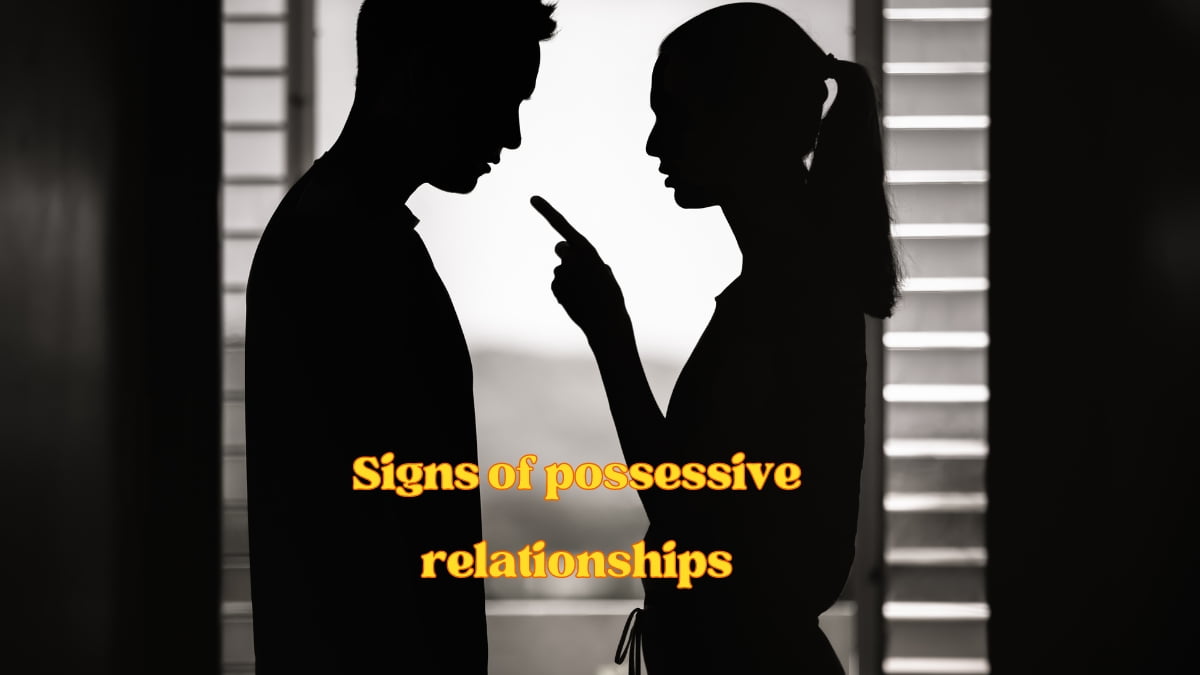Relationships can be complex in today’s fast-paced world, and ensuring they are healthy and nurturing is essential. This article delves into the significant signs that indicate you may have a possessive boyfriend, girlfriend, or partner. Recognizing these signs early on can help you make informed decisions about your relationship’s future.
The Possessiveness Quotient
Possessiveness in a relationship is when one partner attempts to control the other’s actions, thoughts, or feelings. It often stems from insecurity or fear of losing the connection. While some level of possessiveness can be expected, it becomes a concern when it escalates into something more significant. Here are the key signs to watch out for:
1. Excessive Jealousy
A possessive partner often displays jealousy even in harmless situations. They may become overly concerned when you spend time with friends or colleagues of the opposite sex.
2. Isolation from Loved Ones
Isolating you from friends and family is a classic sign of possessiveness. They may discourage you from spending time with loved ones or make you feel guilty when you do.
3. Constant Monitoring
Possessive partners might insist on knowing your whereabouts at all times. They may text or call you frequently to check on you, which can feel suffocating.
4. Control Over Your Choices
They tend to make decisions for you, even in matters that should be entirely your own, such as your clothing, hobbies, or career decisions.
5. Invasion of Privacy
A possessive partner may invade your privacy by going through your phone, emails, or personal belongings without your consent.
6. Emotional Manipulation
They often use emotional manipulation tactics, such as guilt-tripping or making you feel responsible for their happiness.
7. Verbal or Physical Abuse
In extreme cases, possessiveness can escalate into verbal or physical abuse. If your partner resorts to violence or threats, seeking help is crucial.
8. Lack of Trust
Possessive individuals have difficulty trusting their partners, leading to constant suspicion and accusations of infidelity.
9. Dependency
They may foster dependency by discouraging your independence, financial or otherwise, making you reliant on them.
10. Unwarranted Criticism
Criticism is a sign of possessiveness, especially when it’s unwarranted and demeaning. They may belittle your choices or abilities.
11. Manipulative Guilt
Possessive partners often use guilt to make you comply with their demands or give in to their control.
12. Fear of Ending the Relationship
They may express extreme fear or anger at the mere thought of the relationship ending, which can lead to emotional blackmail.
Relationship with the ultimatum
The needy young child who hides behind the demanding and domineering attitude yearns for affection and respect. The abuser will punish you if you don’t give them the conditional love they need and demand. Deep-seated insecurity and a dread of losing things hide beneath the surface, especially in relationships, because you believe that’s how they’ll punish you. Abusers of conditional love cannot feel love and acceptance for themselves. Giving their spouse, partner, or children a request and enforcing it is a prime example of how they make up for it.
Find your aim for this life.
Understanding the psychology of the circumstance is the first step on your route to recovery. Realizing that you cannot be as generous and loving as you wish. You cannot live someone else’s life; we are here to use the talents and abilities that God has given us. You’ll know something is wrong with your circumstances when you experience unhappiness, tension, and energy depletion. Only you have the power to choose and determine what your purpose in life is. You must persistently and quietly demand your own space to obtain the happiness you deserve. Giving someone you love the word “no” does not mean you no longer love them.
Conclusion
Both partners should have trust, respect, and independence in a healthy relationship. If you recognize several of these signs in your relationship, assessing whether it’s a healthy and nurturing partnership is essential. Seeking support from friends, family, or a therapist can be crucial to addressing possessiveness and finding a path toward a more beneficial, balanced relationship.
